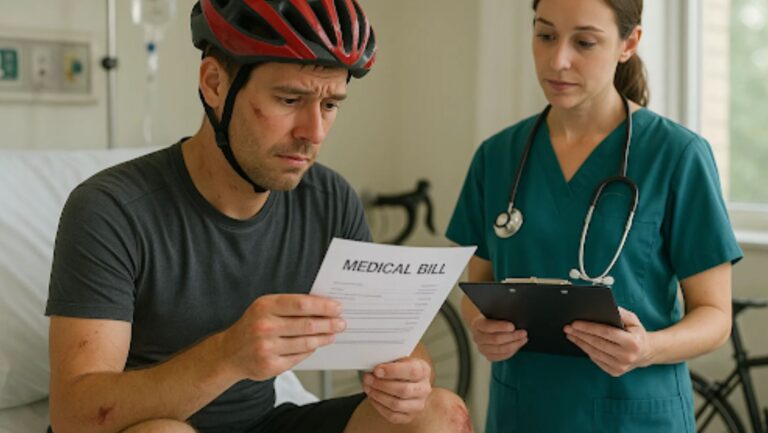Nobody ever wants to file for bankruptcy. However, bankruptcy laws exist for a reason, and it may be beneficial to at least consider going down this path when your financial situation is characterized by overwhelming debt.
What is Chapter 7 Bankruptcy?
Chapter 7 bankruptcy, often called “liquidation bankruptcy,” is a legal process designed to help people (or businesses) eliminate unsecured debts like credit card bills, medical expenses, personal loans, etc. Under Chapter 7, a court-appointed trustee reviews the filer’s assets, and any non-exempt property may be sold, or “liquidated,” to repay creditors. However, many essential assets – like primary homes, necessary personal items, and retirement funds – are usually protected under exemption laws.
Overall, the Chapter 7 bankruptcy process typically lasts three to six months, and at the end, most unsecured debts are wiped out, providing a fresh financial start.
Is Chapter 7 Bankruptcy Right for You?
If you’re buried in debt and unable to find a way out, Chapter 7 bankruptcy might offer the relief you need. Here’s a look at five signs that Chapter 7 bankruptcy could be the right solution for you.
Your Debts Are Unmanageable
One of the clearest signs that Chapter 7 bankruptcy could be right for you is that your debts have become totally unmanageable. If you can’t cover the minimum monthly payments on credit cards, medical bills, or personal loans – or if your debt payments leave you with no funds for basic expenses – it might be time to consider bankruptcy.
Trying to tackle insurmountable debt without any help can trap you in a cycle of stress and actually put you under even further financial strain. In Chapter 7, you can receive a fresh start, wiping out many of your unsecured debts and allowing you to rebuild from scratch.
You’re Facing Collection Lawsuits and Harassment
Creditors have several options for collecting money from debtors. If you’re receiving endless calls, emails, and letters from creditors or even facing lawsuits, Chapter 7 bankruptcy could help. Filing for Chapter 7 activates what’s known as an “automatic stay,” which legally halts all collection activities, including lawsuits, wage garnishments, and phone calls from debt collectors.
The automatic stay can relieve the stress of persistent harassment and provide some breathing room while you navigate the bankruptcy process. It also stops lawsuits in their tracks, which can prevent further damage to your financial situation. While the stay is temporary, it can help you regain control over your finances and give you time to assess your options.
You’re Experiencing Wage Garnishment
Wage garnishment can be particularly devastating, especially if you’re already struggling to make ends meet. When a court orders wage garnishment, your employer is legally required to withhold a portion of your paycheck to go directly toward your debt. If you’re in a situation where wage garnishment is making it impossible to cover essential expenses, filing for Chapter 7 can bring some much-needed relief.
When you file, the automatic stay not only stops creditor harassment but also halts any wage garnishments. This can allow you to keep more of your paycheck and redirect your funds toward living expenses or other necessary payments. After the bankruptcy process, you may be able to permanently eliminate certain debts, giving you more financial freedom and a chance to get back on track.
Your Debt Significantly Exceeds Your Income and Assets
Chapter 7 bankruptcy could be a good option if your debts are much greater than your income and assets. One of the main criteria for filing Chapter 7 is passing the “means test,” which determines if your income falls below a certain threshold for your area. The means test considers your income and expenses to establish whether you genuinely lack the financial resources to repay your debts.
As Amourgis & Associates, Attorneys at Law, says: “You’ll want to run the means test, which determines your eligibility to file for Chapter 7 bankruptcy. If the means test finds that you have the assets and income to pay more to your creditors than they would receive under Chapter 7, you may not qualify.”

The means test can sound intimidating, but a qualified bankruptcy attorney can help guide you through the process. If you pass the test, it’s a strong indication that Chapter 7 could provide the debt relief you need. If you don’t pass, a different type of bankruptcy, like Chapter 13, might be more suitable.
You’re Exhausting All Other Financial Resources
If you’ve tried every other debt relief option and still can’t seem to get ahead, Chapter 7 bankruptcy might be worth considering. This includes cases where you’ve attempted credit counseling, debt consolidation, or even loan modifications but still find yourself falling further behind each month.
Before opting for Chapter 7, many people try less extreme options, such as negotiating with creditors for a lower interest rate, setting up a debt management plan, or finding ways to increase their income. If none of these efforts have worked and you’re still drowning in debt, Chapter 7 bankruptcy may offer the relief that’s been out of reach. It can help you stop the financial bleeding and eliminate a significant portion of your debts, allowing you to start fresh.
Weighing Your Options
Choosing to file for Chapter 7 bankruptcy is a major decision, and it’s important to fully understand the implications. While Chapter 7 can offer a fresh start, it also impacts your credit score and may require that you liquidate certain assets. However, for many people, these downsides are outweighed by the long-term benefits of a debt-free future.
Consulting with an experienced bankruptcy attorney can help you determine whether Chapter 7 is the best option for your situation. Remember, bankruptcy laws exist to help people in difficult financial situations. This may not be what you want to do but may be what you need to do.





